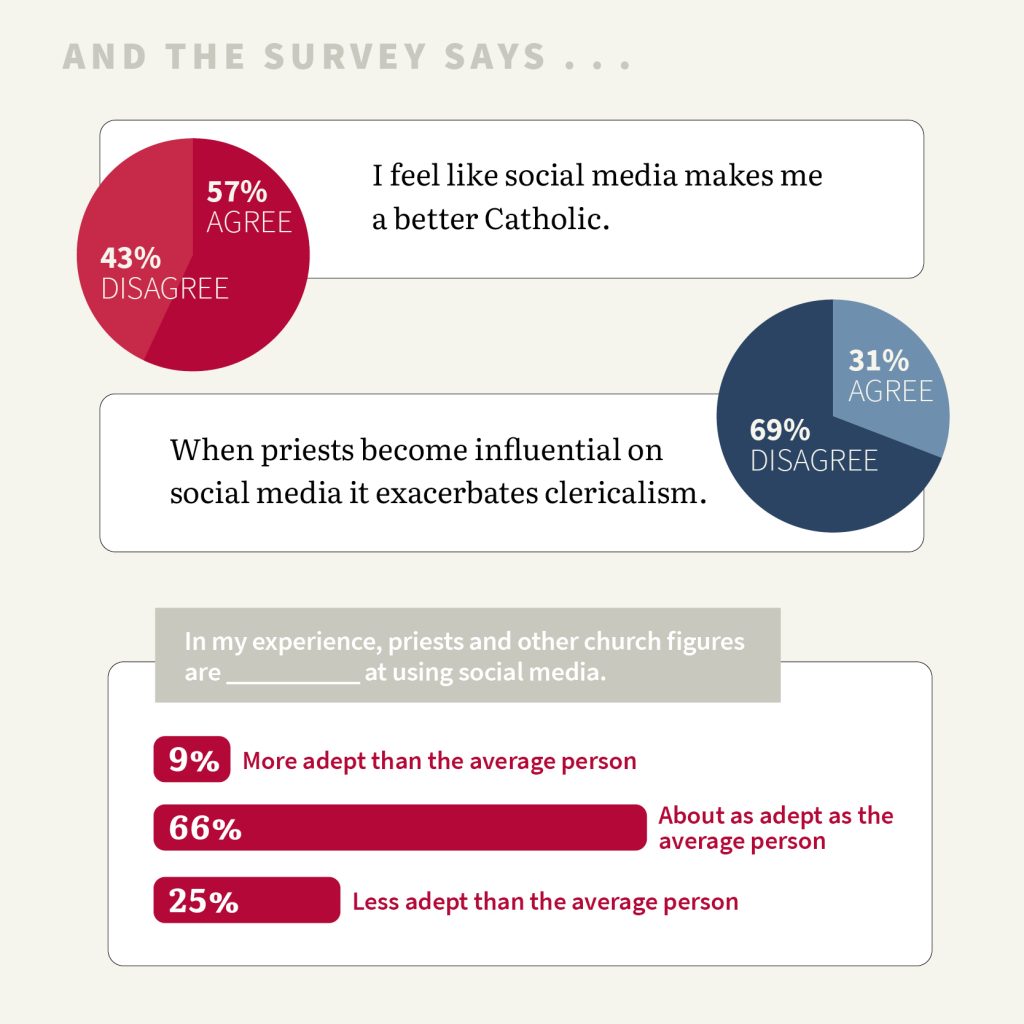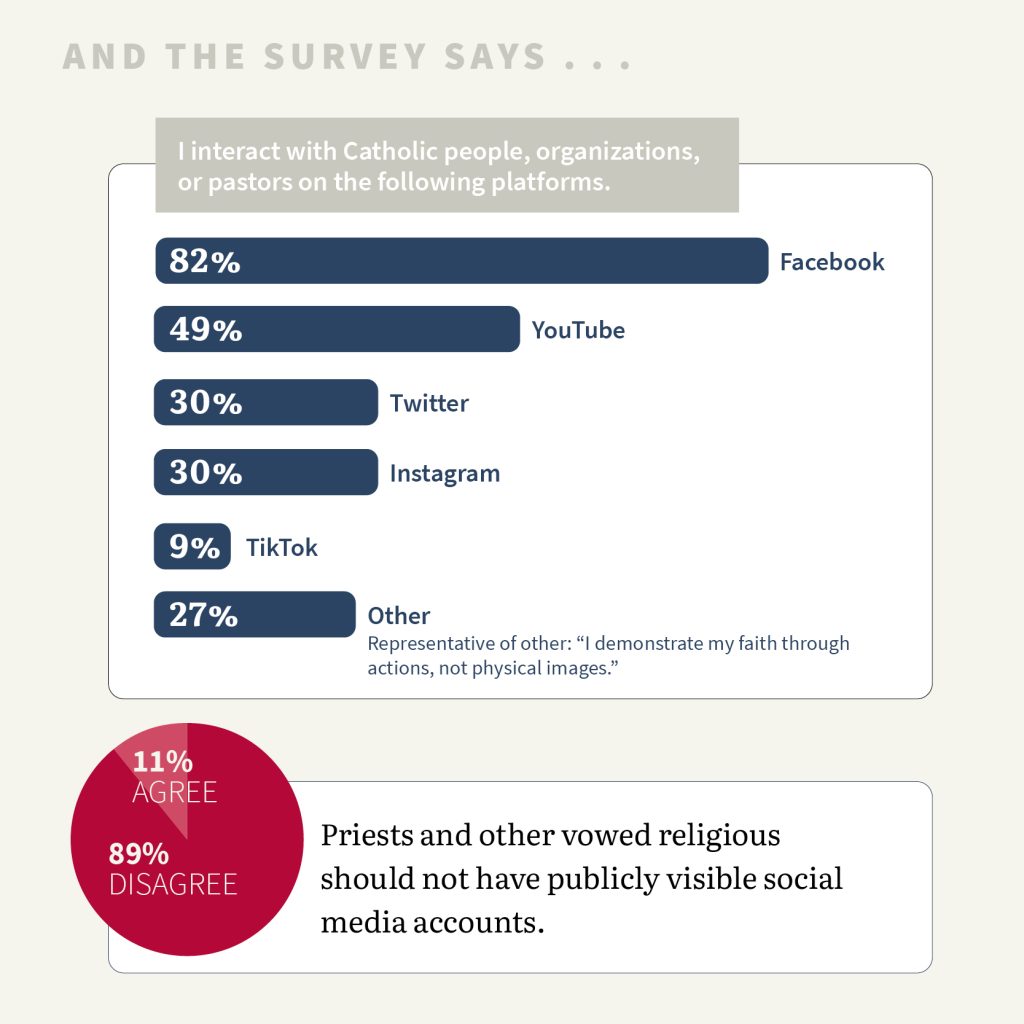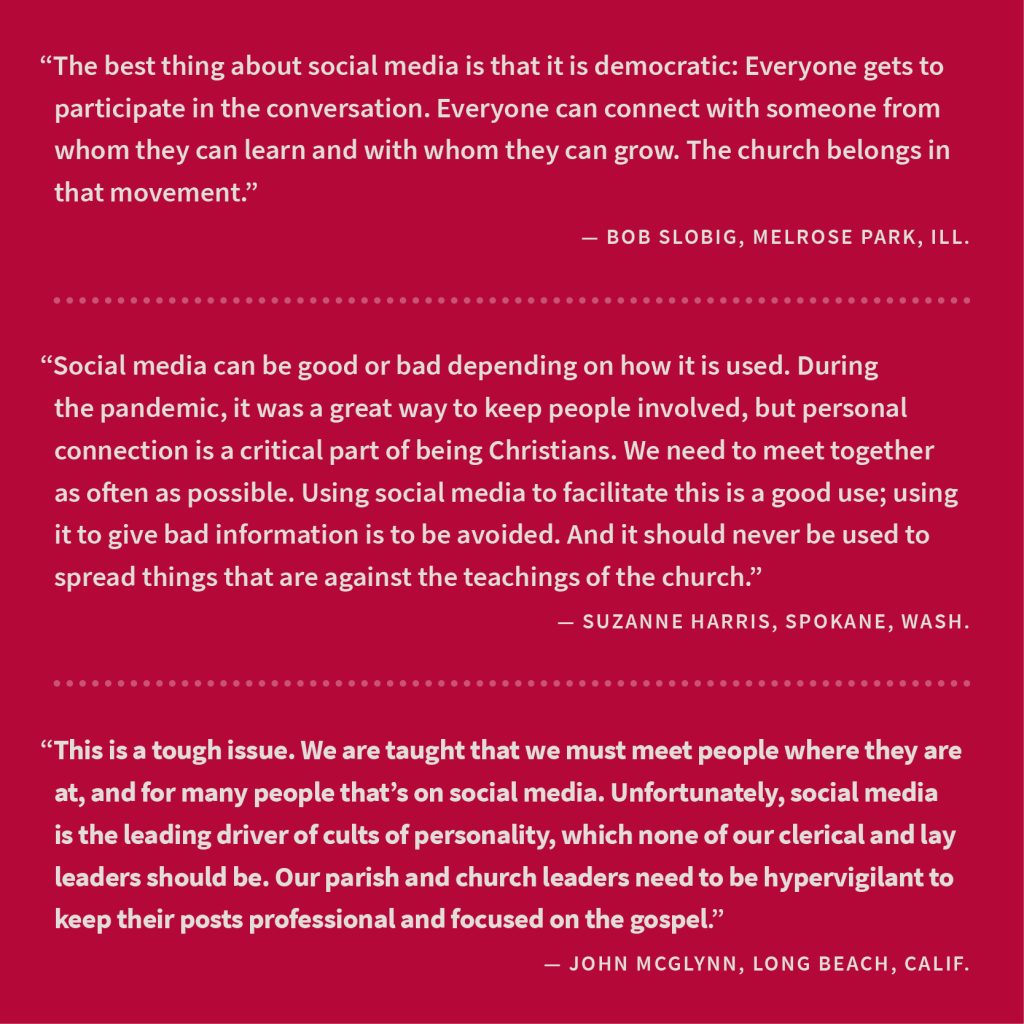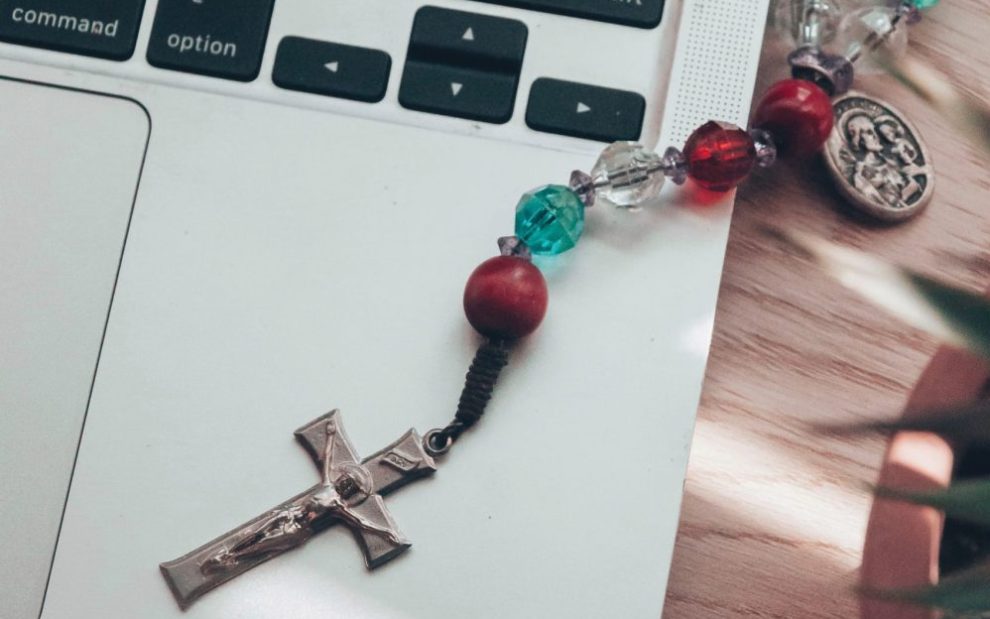When I was in divinity school, all students were required to take a class titled “Negotiating Ministerial Boundaries,” a multi-day long certification earned over a weekend and required for any sort of internship or ministerial work. When I signed up during my first semester, I was told by more senior students that it was simply a milestone to be endured, that it would be 12 hours of learning, basically, that a minister shouldn’t involve themselves in a romantic relationship with those they served.
Imagine my surprise when we started off the weekend not with romantic or sexual prohibitions, but some of the following discussion questions: As a minister, would you be comfortable being Facebook or Instagram friends with members of your congregation? What about if you were a youth minister—would you follow the kids you worked with on social media? Do you think there should be any rules around how those in positions of religious authority communicate over social media?

On one hand, these questions seem simple. Our daily existence is so intertwined with social media that we often don’t think twice before liking, retweeting, or posting. For many of us, social media—in whatever form—is the first thing we do in the morning and the last thing we do at night. Why wouldn’t it be part of how ministers, whether ordained or lay, do their work?
And yet, ponder these questions for another minute or two, and it becomes clear why articulating the answers belongs in a class on ministerial boundaries. Who we are on social media doesn’t always align with who we are in real life. Take a scroll through someone’s profile and you get not their authentic self, but their curated self—the funniest, most successful, most attractive version of their selves. And, in our attempts to garner likes or create this online persona, we can do harm to others. This is especially true for pastors, spiritual directors, teachers, and anyone with authority or a power imbalance over others.
Pope Benedict XVI touches on the dangers of social media in his 2013 World Communications Day message. “Does the danger exist that we may be less present to those whom we encounter in our everyday life? Is there a risk of being more distracted because our attention is fragmented and absorbed in a world ‘other’ than the one in which we live? Do we have time to reflect critically on our choices and to foster human relationships which are truly deep and lasting?” he asks. “It is important always to remember that virtual contact cannot and must not take the place of direct human contact with people at every level of our lives.”
Anyone who follows Catholic figures on social media probably has examples of times when these people have forgotten the true purpose of social media, resulting in more broken relationships than deep and lasting ones. There was the young priest on TikTok who, while participating in a popular video trend, ended up talking about ranking women based on their physical appearance. Another priest with a large Twitter following drew controversy when he tweeted a gif of a sloth with the word “NO” under a Twitter post of a rainbow flag expressing hope that LGBTQ people would be treated with respect. Still another priest on Twitter told women they should dress modestly at Mass to “protect the purity of men.” And, most recently, a U.S. bishop came under fire for tweeting that he rejects Pope Francis for “undermining the Deposit of Faith.”
U.S. Catholic asked readers what they thought about the purpose of social media in ministry and whether they thought it did more good than ill—whether it served as a tool of evangelism or fostered a sense of clericalism.
Overall, the vast majority of respondents (over 80 percent) used social media to interact with Catholic priests, influencers, or parishes. Many remarked that social media made them feel connected to the broader Catholic community, whether to other members of their parish or to Rome. “Social media reminds me that my family and I are not alone trying to live out the liturgy in our lives and enables me to connect with organizations and people who will help us do so,” writes Andrew Casad from Seattle. Likewise, Ruth Hroncich from Brookfield, Illinois, writes, “I can access different classes and attend Mass anywhere in the world on YouTube.”

However, people also noted the dangers of social media, especially for clergy and those in positions of religious authority. “There are clergy, religious, and laypeople who can be caustic, as well as focus more on promoting or denouncing ideologies rather than being heralds of joy and the gospel,” says Matt Kappadakunnel from Torrance, California.
Others pointed out that there’s no fact checking on social media, and it can be hard to know which sources or individuals are trustworthy. “The platforms are a largely unregulated ‘Wild West’ environment where participants can say what they want,” says Bob Slobig from Melrose Park, Illinois. “A lot of it isn’t true, a lot of it isn’t well thought out, and a lot of it is hateful.”
Finally, readers offered some wise advice for any religious figures seeking to build a following. “Use discretion. If you wouldn’t say it in public don’t post it on any social media outlet,” writes Suzanne Harris from Spokane, Washington. Likewise, Nadita Anne Alhadef from Redlands, California, writes, “What would Jesus do? If you are there to belittle or attack any group of people or spread hate, you should not be online.”
“Digital technology is rapidly changing our lives and presenting new ethical questions,” writes Kate Ott in the introduction to her book Christian Ethics for a Digital Society (Rowman & Littlefield). “Yet many of us engage digital technologies without considering how their design is reshaping the ways we might think about our relationship with God, Christian practices, care for creation, or work toward a more just society.” As social media becomes increasingly integrated into our daily lives, clergy, parishes, and other ministers must consider how what they say on social media affects the aspects of religious life Ott mentions and develop their own ethics for how to engage on social media in order to ensure they are building the kingdom of God, not breaking it down.

This article also appears in the July 2023 issue of U.S. Catholic (Vol. 88, No. 7, pages 20-25). Click here to subscribe to the magazine.
Results are based on survey responses from 72 uscatholic.org visitors.
Image: Unsplash/Maria Oswalt















Add comment